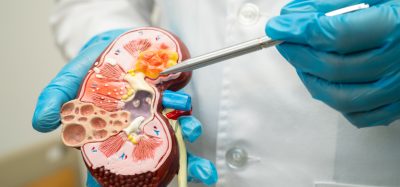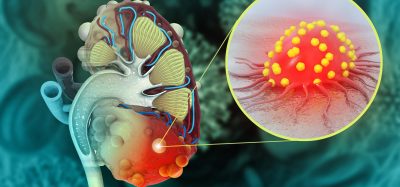Potential peptide treatment could prevent onset of PTSD
Posted: 14 January 2020 | Hannah Balfour (Drug Target Review) | No comments yet
A study has identified a protein complex elevated in PTSD patients and developed a peptide to disrupt it, preventing the recall of fear memories in early tests and paving the way for new therapies.


A research team has identified that the glucocorticoid receptor (GR) and FK506 binding protein 51 (FKBP51) protein complex is elevated in post-traumatic stress disorder (PTSD) patients. In their study, investigators created a peptide to disrupt the complex and found administering it after a distressing event prevented recall or encoding of fear memories in tests.
The study published in the Journal of Clinical Investigation, suggests that this peptide – or one similar – could provide the basis of a treatment that would prevent PTSD forming.
“The discovery of the GR-FKBP51 protein complex provides a new understanding of molecular mechanisms underlying PTSD,” said Dr Fang Liu, research team leader, Senior Scientist and Head of Molecular Neuroscience in Centre for Addiction and Mental Health’s (CAMH’s) Campbell Family Mental Health Research Institute, Canada.
Biomarkers aren’t just supporting drug discovery – they’re driving it
FREE market report
From smarter trials to faster insights, this report unpacks the science, strategy and real-world impact behind the next generation of precision therapies.
What you’ll unlock:
- How biomarkers are guiding dose selection and early efficacy decisions in complex trials
- Why multi-omics, liquid biopsy and digital tools are redefining the discovery process
- What makes lab data regulatory-ready and why alignment matters from day one
Explore how biomarkers are shaping early drug development
Access the full report – it’s free!
She continued: “We believe this protein complex normally increases after severe stress, but in most cases, levels soon go back to baseline levels. However, in those who develop PTSD, the protein complex remains persistently elevated, so this could be a blood-based biomarker for PTSD as well as a target for pharmacological treatment. In addition, the peptide we developed could be given after a traumatic event and could possibly prevent the patient from developing PTSD. This is a completely new approach to PTSD and for psychiatric disorders in general.”
“We are thrilled this CAMH-led discovery can potentially help millions of people put trauma behind them,” concluded Dr Liu.
CAMH has filed a patent for the peptide and diagnostic aspect of Dr Liu’s invention. Dr Liu and her team will continue their research with this peptide; refining it prior to starting clinical trials in humans.


Related topics
Disease Research, Drug Discovery, Drug Targets, Peptide Therapeutics, Research & Development, Therapeutics
Related conditions
Post-traumatic stress disorder (PTSD)
Related organisations
Centre for Addiction and Mental Health (CAMH)
Related people
Dr Fang Liu








